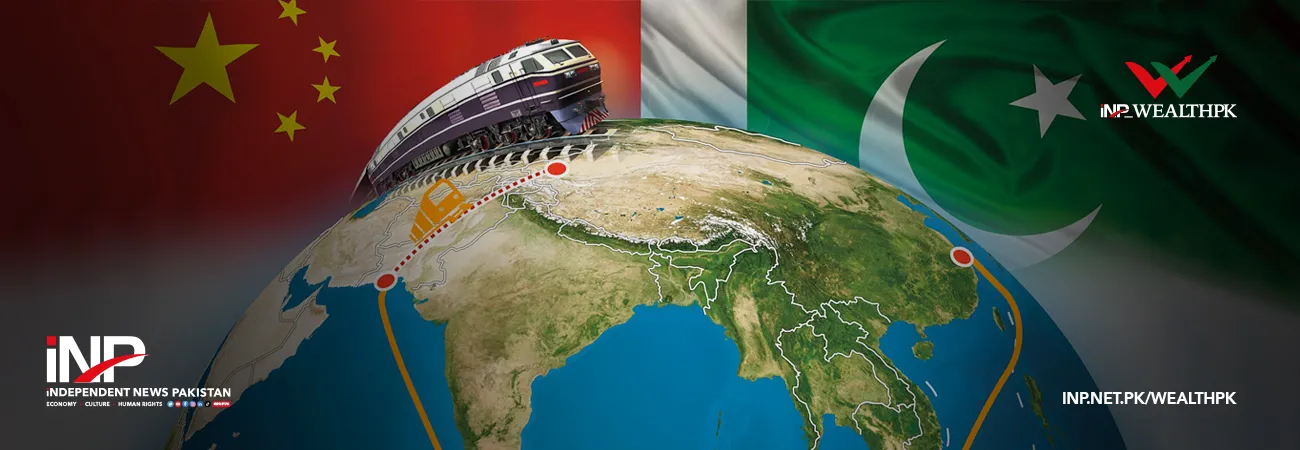INP-WealthPk
Ayesha Saba
As Pakistan seeks to

bolster its economic prospects through the China-Pakistan Economic Corridor (CPEC), experts emphasise the need for investor-friendly policies to ensure the success and timely completion of key infrastructure and trade projects. “The steady increase in foreign direct investment from China since the launch of CPEC highlights Beijing’s role as Pakistan’s leading source of FDI. This trend reflects the keen interest of Chinese investors in deepening their investment presence within Pakistan’s economy,” pointed out Dr Muzammil Zia, Regional Connectivity and Infrastructure Specialist, CPEC Secretariat. Talking to WealthPK, he said: “Unlike the first phase of CPEC, which was driven by government-to-government (G2G) relations, the second phase will focus on business-to-business (B2B) and people-to-people (P2P) partnerships.”
"Pakistan is currently at a critical juncture where rapid industrialisation and investment is essential, and Special Economic Zones present a key platform to facilitate this process, given Pakistan's vast domestic market and its abundant supply of young, affordable workers," he stressed. Zia maintained that a robust and transparent investment environment is essential to attract and retain investors, particularly given the scale of capital investment required for CPEC-related projects. “Pakistan has already seen substantial investments from China, but attracting more FDI will be key to expanding the scope of CPEC.” Dr Hassan Daud Butt, former project director at CPEC and senior adviser at Sustainable Development Policy Institute (SDPI), told WealthPK that the potential of the multi-billion-dollar project could only be fully realised if Pakistan creates an environment that protects investors' interests. “This includes ensuring political stability, legal guarantees, and addressing issues related to security and bureaucratic red tape.”
Butt also stressed that the government should adopt a selective approach to development, prioritising projects that offer the highest returns on investment. “Resources must be allocated in a way that maximises economic impact while ensuring that the country’s labour force becomes more productive,” he said. “In Pakistan where infrastructure is underdeveloped and the business environment is challenging, SEZs and industrial parks can play a critical role in overcoming these barriers. By offering attractive incentives, streamlined regulations, and better infrastructure within these zones, Pakistan can lower the entry barriers for firms, attract FDI, and encourage the formation of industrial clusters,” the SDPI senior adviser noted. He said Pakistan also faces significant geopolitical challenges that could impact CPEC's progress. “Good relations with neighboring countries as well with western nations are critical to see the CPEC through.”
Credit: INP-WealthPk













